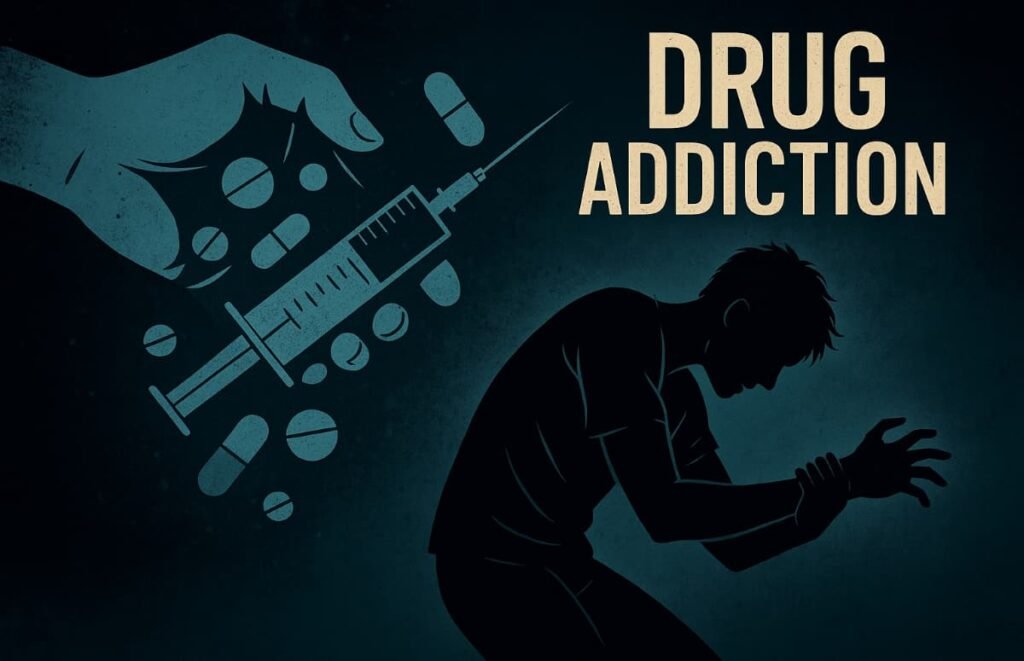Drug Addiction Paragraph: 200 & 400 Words

Drug Addiction Paragraph: 200 Words
Drug addiction is a chronic disease that affects the brain’s reward system, causing compulsive drug seeking despite harmful consequences. People suffering from drug addiction often start with voluntary drug use, but over time, their ability to choose not to take drugs becomes compromised. This is due to changes in the brain that challenge self-control.
In the early stages, drug use may seem harmless. However, as addiction develops, it affects relationships, finances, physical health, and mental well-being. According to the National Institute on Drug Abuse, addiction can also be linked to underlying mental health conditions such as depression and anxiety.
Drug addiction is treatable. With the right support system and medical help, individuals can regain control over their lives. Treatment options include therapy, rehabilitation programs, medication-assisted treatment, and peer support groups. Family involvement and strong internal motivation play a major role in recovery.
If you or someone you know is struggling with addiction, don’t wait. Our guide to overcoming addiction provides practical tools and links to trusted recovery centers.
Paragraph: 400 Words
Drug addiction is more than just a bad habit it’s a serious health condition that can hijack a person’s life. Recognized as a brain disorder, drug addiction changes how the brain functions, especially in areas responsible for decision-making, judgment, and behavior control. These changes make it incredibly difficult for addicted individuals to quit using substances without help.
One of the most alarming aspects of Drug habit is how silently it takes over. What begins as casual use often due to peer pressure, curiosity, or coping mechanisms can rapidly spiral into dependency. Whether it’s opioids, stimulants, or prescription medication, all forms of drugs can lead to devastating outcomes when abused.
Drug addiction doesn’t discriminate. It affects people across all ages, backgrounds, and income levels. Common signs include mood swings, secretive behavior, neglecting responsibilities, and physical symptoms like weight loss or sleep issues. The earlier the intervention, the better the chances of recovery.
Fortunately, recovery is possible. Modern treatment methods are more advanced and compassionate than ever. Detoxification, counseling, cognitive behavioral therapy, and long-term support are key components of addiction treatment. Medications such as methadone or buprenorphine can also help in managing withdrawal symptoms and preventing relapse.
It’s crucial to understand that drug addiction recovery is not just about stopping drug use it’s about rebuilding one’s life. Support from family and access to community resources can greatly enhance the healing journey. For more insights and tools, check our addiction help resource page.
For further reading, the World Health Organization offers a comprehensive look into addiction’s global impact and recovery initiatives.
Ultimately, overcoming drug addiction requires courage, commitment, and the right guidance. Let this be your first step toward freedom.